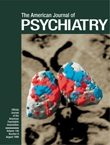Treatments based on the idea that dysfunctional families cause serious mental illness are not only useless but have severely damaged the potential for collaboration between professionals and families
(1). Family interventions that use engagement, support, education, and problem solving are among the most effective evidence-based interventions available for patients with serious mental illness
(2). Effective treatments that delay or prevent relapse regard schizophrenia as a biologically based illness, do not implicate the family environment as its cause, and view families as positive therapeutic agents.
Despite unequivocal empirical support, family interventions are markedly underused
(3). A recent field study
(4) reported that less than one-third of patients who have contact with their families said that their families had received information, support, or advice about their illness and less than 10% said that their families had attended an educational or support program. Greater dissemination of effective models of family intervention is clearly a priority for service improvement.
Serious Mental Illness and the Family is aptly subtitled The Practitioner’s Guide. Its goal is to assist practitioners in developing the competence needed for working with families that include an adult member with serious mental illness. Although not focused solely on empirically tested family psychoeducation, the principles of research-supported interventions are extracted and applied in a flexible and pragmatic model based on assessment of individual family needs and preferences.
Interventions can include family consultation, support, and advocacy groups (the National Alliance for the Mental Ill, for example), individual or group psychoeducation, skills training and coping enhancement, or psychotherapy for family members, as required by individual circumstances. A life span perspective emphasizes the process of acceptance and adaptation to serious mental illness in the family and provides specific insight into issues characteristically faced by parents, spouses, siblings, and offspring.
The practitioners for whom this book is written are described in a series of vignettes focused on putting theory into practice. A staff psychologist is scheduled to meet with the family of a college student who has become psychotic or with the aging parents of a middle-aged schizophrenic man; a family therapist in a multidisciplinary group practice is charged with developing a family program for a managed care contract; a social worker tries to help a couple whose marriage is threatened by the stress of dealing with their son, who has dual diagnoses; an advanced practice nurse receives a call from a patient’s siblings, who live in another town but want to meet to discuss how they might become more involved in their brother’s care. Chapters are introduced with such vignettes and end with simulated therapist/family process notes showing what the family session might be like. Although at times stilted and Pollyannaish, these vignettes will be useful to trainees who are apprehensive about beginning their work with the families of people with severe mental illness.
Marsh presumes that someone other than a psychiatrist will be primarily responsible for providing services to families. Indeed, the psychiatrist is conspicuous by his or her absence in the clinical situations described. As organized care settings demand greater physician “productivity,” the stereotype of the distant psychiatrist who is too busy to do anything beyond prescribing medications is probably increasingly accurate. This is regrettable; it is hard to imagine any other serious medical illness in which the critical tasks of communicating the diagnosis, treatment options, and prognosis are largely delegated to other treatment team members.
Marsh’s Serious Mental Illness and the Family: The Practitioner’s Guide is an outstanding resource for clinicians in social work and psychology; it warrants inclusion as part of the core curriculum for trainees who will work with patients with serious mental illness and their families. Although the guide is nonmedical in focus, it will also be of value to the psychiatrist who defines his or her role broadly as a treatment team leader who coordinates multidisciplinary treatment efforts that include family assessment, education, and intervention.

